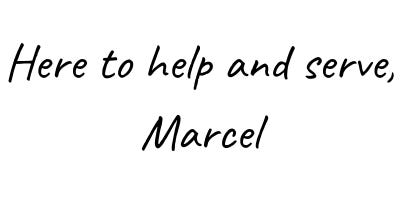The Secret to Building a Stronger, More Engaged Team You Might Be Missing
A five-step engagement based on one foundational principle of Servant Leadership, backed by research.
The world of leadership needs a humane shift.
Away from fear-based control and toward an approach rooted in emotional intelligence, purpose, growth, and service to others.
In Humane Leadership, you’ll learn how to create a workplace where:
Your team feels empowered, respected, and supported in doing their best work.
You lead with authenticity and confidence, inspire radical love in action, and cultivate meaningful results.
Ready to shift your leadership style and create a workplace culture that attracts top talent, fosters lasting loyalty, and delivers real results?

Imagine walking into a workplace where you feel truly seen and heard, not just as a cog in the machine, but as a person with unique strengths and ideas. Your contributions are recognized. There’s meaning and purpose in the work that you do. You’re recognized for your efforts.
This isn't a fantasy; it's the reality in organizations that practice servant leadership, particularly those that prioritize "valuing people." My research partner, Dr. Jim Laub, has conducted extensive studies on this foundational principle of servant leadership. He found that valuing your people is at the heart of a business's success. It leads to happier teams, better collaboration, and a stronger organization.
A compelling example comes from a case study on the McNeff family's network of family-owned companies in Anoka, Minnesota. Researchers found that the McNeffs' servant leadership practices, especially their emphasis on valuing people, significantly contributed to high employee job satisfaction. You think that’s good for business? You betcha. Employees reported feeling genuinely cared for, which in turn fostered a positive organizational culture, which led to improved morale and results.
To make this as practical as possible, we'll explore exclusive strategies to help you implement this principle at work.
Five Ways to Value People
As you go over each item below, your first thought might be, “This seems like common sense.” You’re right. But I’m here to tell you that in the transactional business world where the stakes are high and people are often taken for granted, these behaviors are not common practice.
1. Be a Good Listener
Listening isn't just about hearing words; it’s about understanding and empathizing. When people feel listened to, they feel respected and understood. It’s one of the most common techniques I teach and coach leaders to become more effective: you have to learn how to listen.
Practical Example: During one-on-one meetings with your team, instead of diving straight into business updates, ask how they’re doing personally or what challenges they’re facing at work. For example, you could say, “I know we have a lot of projects on the go, but how are you managing everything right now? Is there anything you’re struggling with?” Make it a point to listen without interrupting, and reflect back what you’ve heard.
Best Practice: If someone shares a concern or challenge, don’t just listen passively. Actively follow up by asking, “What can I do to support you with this?” or “How can we tackle this together?” This shows you’re genuinely invested in their well-being and success.
2. Trust Your Team
When you trust your team, you give them the freedom to do their best work. Empowering them to make decisions boosts their confidence and demonstrates that you have faith in their abilities.
Practical Example: When delegating a task, resist the urge to micromanage. Let them own the process. For instance, if you're giving someone a new project, say, "I trust you with this. Let me know if you need any guidance, but I believe you have the skills to make it happen." This trust builds their confidence and makes them feel like an integral part of the team.
Best Practice: Give your team the autonomy to experiment and learn. If a team member suggests a new approach to solving a problem, let them try it. If it doesn’t work out perfectly, that’s okay—it’s an opportunity to learn together. Let them know that their ideas matter and that it’s okay to make mistakes.
3. Say Thank You (A Lot)
Gratitude is a simple but powerful way to make someone feel valued. When people know their hard work is appreciated, they’re more likely to stay engaged and motivated.
Practical Example: Don’t wait for big achievements to say thank you. Recognize the small wins, too. After a busy week, you could say, “I really appreciate how you handled that client presentation. You made a huge impact, and it didn’t go unnoticed!” Or, send a quick email, text, or hand-written note after a successful project wrap-up saying, "Thank you for putting in so much effort this week. Your work made a big difference.”
Best Practice: Personalize your gratitude. Instead of just saying “Great job,” be specific about what you’re thanking them for. This shows you’re paying attention and that you truly value their individual contributions. It also reinforces the behavior that will encourage high performance.
4. Help Them Grow
People feel truly valued when you support their personal and professional growth. By providing opportunities to learn and advance, you show them that you care about their future, not just their current role.
Practical Example: Take the time to have career development discussions with your team. Ask them about their goals and the skills they want to develop. For example, “I see you’ve taken on more responsibilities recently—where do you see your career going, and how can I help you get there?” Then, help them find relevant training, mentorship, or new opportunities to grow within the company.
Best Practice: Provide regular feedback and constructive criticism that focuses on how they can improve and grow. Instead of just pointing out what needs work, also highlight their strengths and potential. Offering regular check-ins ensures that growth is a continuous, supported process.
5. Create a Welcoming and Inclusive Environment
Everyone deserves to feel like they belong in the workplace. A culture of inclusion doesn’t just make people feel valued; it also boosts innovation and collaboration, as everyone feels comfortable sharing their ideas.
Practical Example: Create spaces where all voices can be heard, whether it’s through team meetings, feedback surveys, or an open-door policy. For example, after a team brainstorming session, ask, “Does anyone have thoughts or ideas that haven’t been shared yet?” This signals that everyone’s input is welcome, no matter their role or level.
Best Practice: Set up regular team-building activities that promote inclusivity and collaboration. It doesn’t always have to be a big, formal event—simple things like team lunches, fun group challenges, or casual coffee chats can help everyone feel like a part of the team. Encourage diversity of thought and make sure all team members have an opportunity to contribute.
Key Principles in Summary
To truly value people as a servant leader, keep these key principles in mind:
Listen with Intention: Show you care by truly hearing your team, not just what they’re saying, but what they’re feeling and thinking.
Build Trust: Empower your team by trusting them with responsibility and giving them the freedom to succeed.
Appreciate Often: Recognition matters. Make it a habit to show your gratitude for the work people put in.
Invest in Growth: Help your team develop by offering opportunities to learn and grow professionally.
Foster Inclusivity: Create a supportive, welcoming environment where everyone feels heard, respected, and valued.
Conclusion
Valuing people isn’t some fluffy, feel-good idea – it’s a key to great leadership. When you make an effort to listen, trust, appreciate, support growth, and create an inclusive environment, you’re not just being a good leader – you’re building a strong, loyal, and motivated team. The research is clear: practicing these behaviors leads to happier, more engaged employees and a thriving organization. So, if you want to create a positive culture and drive real success, start by valuing your people. It’s that simple.
Your Next Step
If you’re serious about becoming a servant leader who truly values your people, schedule a no-obligation appointment with me and let’s talk. Through my coaching programs, we’ll work together to help you build the skills to lead with confidence, all while empowering your team to reach their full potential. Imagine a workplace where your team feels heard, valued, and motivated to bring their best selves to work every day. That's the kind of leadership we can create, together.
If you're ready to dive deeper into servant leadership, reach out today. I’d love to help.
P.S. I’d love to hear your thoughts, and I know others would too. What’s one insight, challenge, or question you’re sitting with after reading this? Share it in the comments and let’s keep the conversation going.
If you’re joining me for the first time - welcome!
You’ve arrived at a place dedicated to helping you grow as a leader. To get started, click the red button below, and I’ll do everything I can to provide you with insights, tools, and pathways to help you lead with greater clarity, impact, and care.
When you're ready to take the next step in your leadership journey, here are three ways I can serve you:
Read the Book: If you’re ready to lead with heart and build a culture where people feel seen, supported, and inspired to give their best, Humane Leadership is your guide. You’ll learn how to foster trust, earn lasting loyalty, and lead with radical love without losing sight of results.
Upgrade to Founding Member: Substack Founding Members receive a 45-minute private coaching session with me. Whether you're navigating a team challenge or seeking clarity on your next leadership step, we’ll work through it together so you can lead with confidence and care.
Explore Leadership Coaching: If you’re ready to grow deeper as a leader, personally and professionally, my coaching programs are built to support that journey. Together, we’ll strengthen your leadership so you can empower your team and create the kind of culture where people and results can truly thrive. Schedule a no-obligation appointment to learn more.







